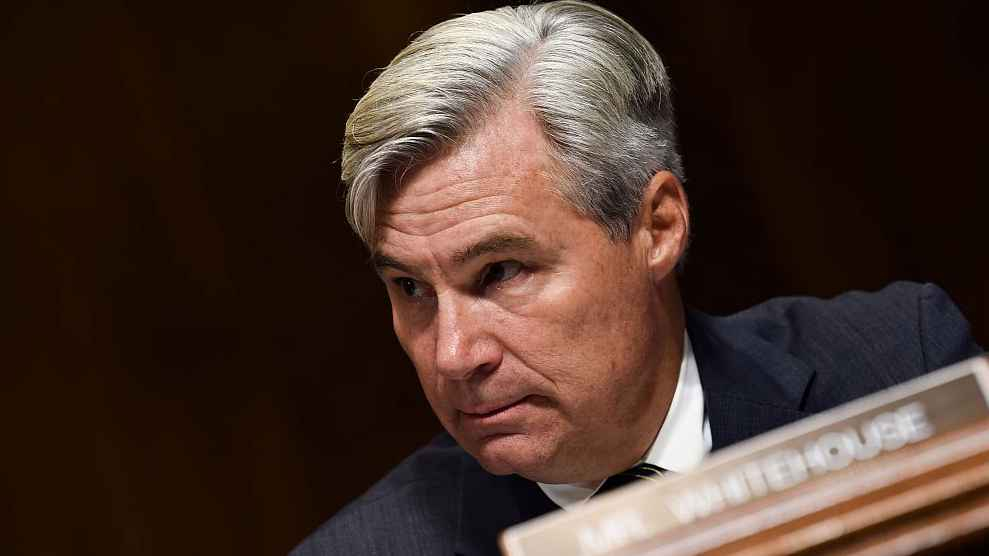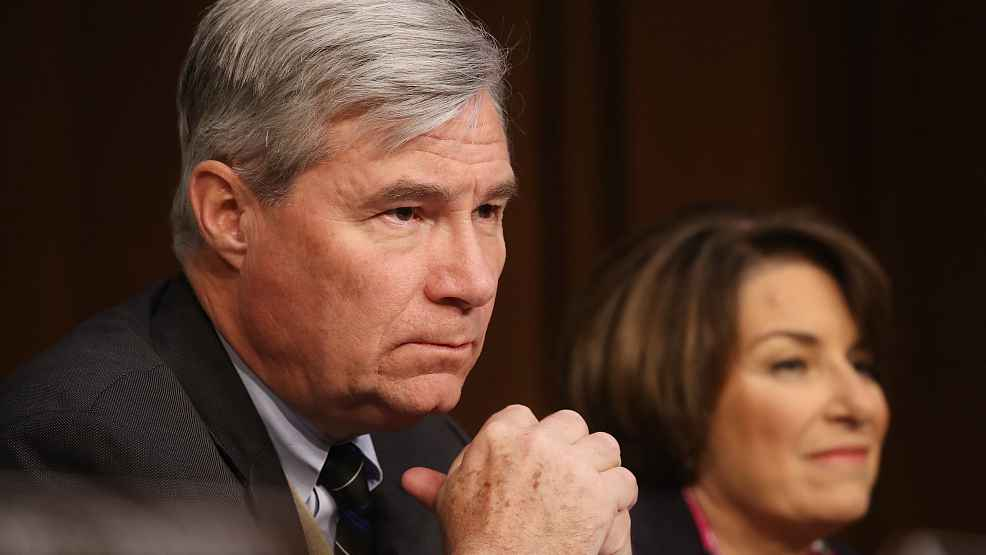
World
12:24, 30-Jan-2019
U.S. lawmakers move to criminalize global doping fraud
CGTN

U.S. lawmakers introduced the Rodchenkov Anti-Doping Act on Tuesday with rare bi-partisan support to criminalize international doping fraud conspiracies, a week after the World Anti-Doping Agency decided against suspending Russia.
The proposed law would attack U.S. sponsorship and broadcast rights money for global sports events with U.S. competitors to ensure fraud against Americans wouldn't go unpunished, with penalties up to a 1 million-U.S. dollar fine and 10 years in prison.
"Now is the time to create stiff penalties for Russia's cheating and send a signal that Russia and other sponsors of state-directed fraud can't use corruption as a tool of foreign policy," U.S. Senator Sheldon Whitehouse said.
WADA decided against re-imposing a ban on Russia for missing a deadline to provide data from drug tests in the wake of the 2016 report from Richard McLaren detailing Russian state-backed doping from 2011 to 2015 involving more than 1,000 athletes across more than 30 sports.
"We know from experience we must meet the bad behaviour of Russia's corrupt government with strength," Whitehouse said.
"Anything less they take is encouragement. That's why the responses of WADA and the International Olympic Committee to the Russian doping scandal fall woefully short."
While WADA eventually received the data, U.S. Anti-Doping Agency (USADA) chief Travis Tygart criticized WADA, saying: "Change is needed for a global system that holds athletes strictly accountable but allows states to corrupt the Olympic Games and perpetuate massive fraud on athletes and the public."

U.S. Senator Sheldon Whitehouse (L) was among the lawmakers who introduced an Anti-Doping Act on January 29 aimed at criminalizing sports doping conspiracies. /VCG Photo
U.S. Senator Sheldon Whitehouse (L) was among the lawmakers who introduced an Anti-Doping Act on January 29 aimed at criminalizing sports doping conspiracies. /VCG Photo
The American lawmakers, one from each party introducing the bill in both the U.S. Senate and House of Representatives, named their proposed law for Grigory Rodchenkov, the former Russian anti-doping laboratory chief who served as a whistleblower for the cheating and is now in hiding in the United States for his safety.
"Without Dr. Rodchenkov's courage, we would still be in the dark about the extent of Russia's doping fraud," said U.S. Senator Roger Wicker.
"He's now in hiding, fearing that Russian thugs may one day come for him... Dr. Rodchenkov and those other brave individuals who reveal the crimes of authoritarian regimes deserve better."
The bill would create punishments for a scheme to influence a global sporting event through banned substances or methods, bring restitution to victims from conspirators, aid whistleblowers through current witness and informant protection laws, and mandate sharing information with USADA.
"WADA's most recent decision to give Russia a free pass clearly conveys that leaders of international sport governance refuse to uphold the integrity of sport," U.S. Representative Michael Burgess said.
"The current framework has proven ineffective and fundamentally unfit to defend clean athletes and prevent doping fraud."
Lawmakers said that by swapping out tainted doping test samples for clean ones, Russian officials at the 2014 Sochi Winter Olympics cheated U.S. athletes out of not only Olympic glory but also the opportunity for lucrative sponsorships -- and they did so with bribes and secret payments sometimes from U.S. institutions.
Source(s): AFP

SITEMAP
Copyright © 2018 CGTN. Beijing ICP prepared NO.16065310-3
Copyright © 2018 CGTN. Beijing ICP prepared NO.16065310-3